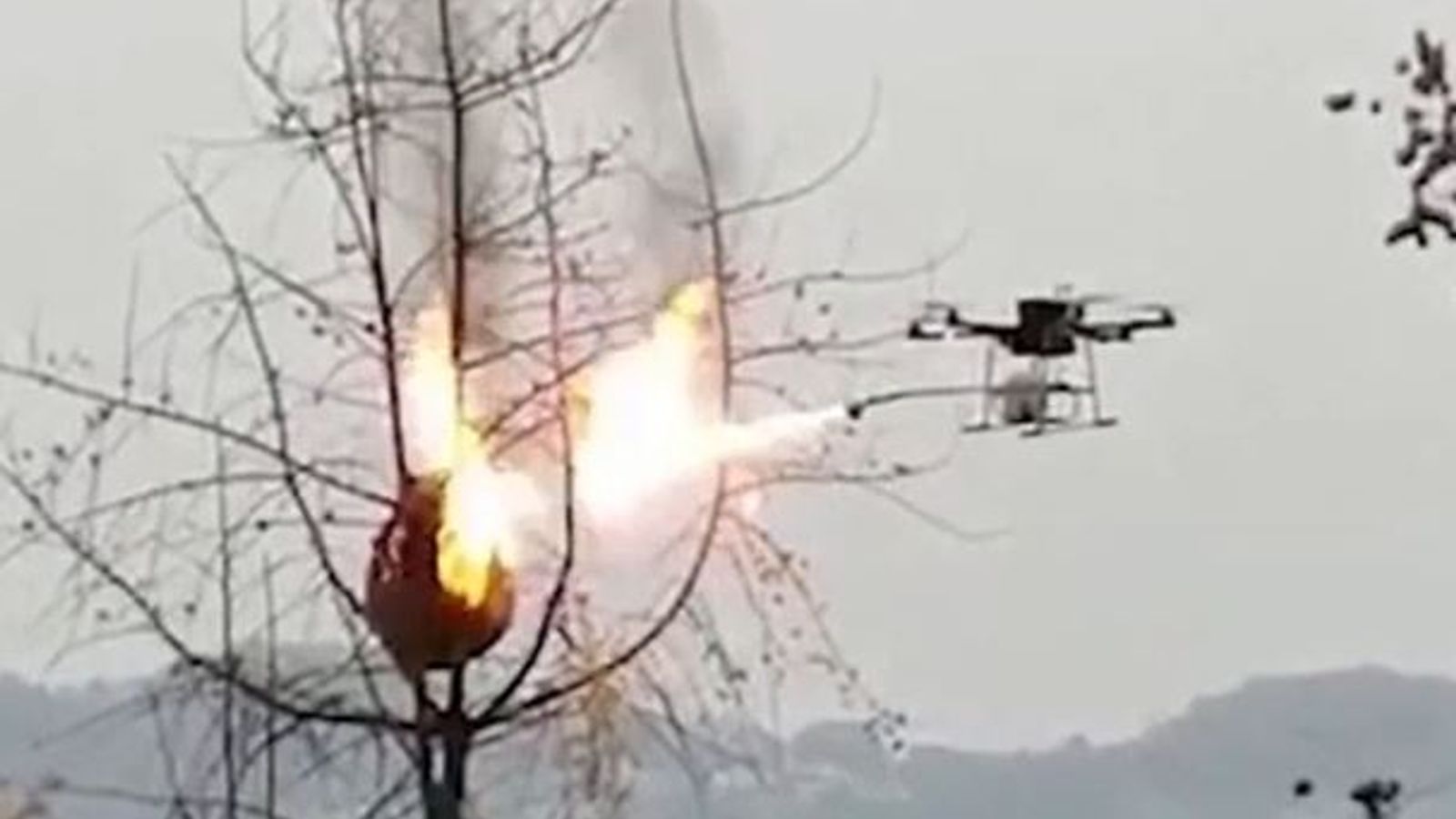
[ad_1]
A group in China is using a flamethrower drone to destroy wasp nests.
The device is being used as part of a campaign to eradicate more than 100 wasp nests in a village in Zhong county, near Chongqing city.
Blue Sky Rescue, described by the China Daily newspaper as the country’s largest non-governmental humanitarian organization, partnered with residents to carry out the operation.
The group of volunteers, who normally carry out search and rescue and other emergency work, raised 80,000 yuan (£ 9,200) to buy a drone and equip it with a gas tank and a long-arm nozzle.
The videos show a recent drone mission that involved it flying over a hive before unleashing a blast of fire, setting fire to the nest which, because it is made of wood pulp, is effectively paper.
An article in a local news app run by Chongqing state television said: “The burning ashes of the hornet’s nest gradually peeled off and fell, and the surrounding residents applauded and praised the rescue team.”
So far, 11 hives have been destroyed, leaving around 100.
Wasp and hornet stings have periodically been responsible for a series of deaths in rural China, usually due to the time it takes to obtain emergency medical help.
In 2013, the China Daily reported that more than 100 people had died from severe wasp stings in Sichuan, which borders Chongqing, Shaanxi and Henan provinces.
According to the British Association of Pest Controllers, while one wasp is typically not dangerous, 30 or 40 stings may be enough to kill a person.
Wasps are generally active in the warmer months and die in cold weather, but the queen hibernates during the winter, usually in the bark of a tree or anywhere protected from frost.
A colony will leave its nest after the summer and will not return to it the following year, when the queen begins to build a new one.
Ecologists advise against eradicating wasps because they are carnivorous, meaning that they feed on creatures that gardeners and farmers consider pests and also act as excellent plant pollinators.
[ad_2]

